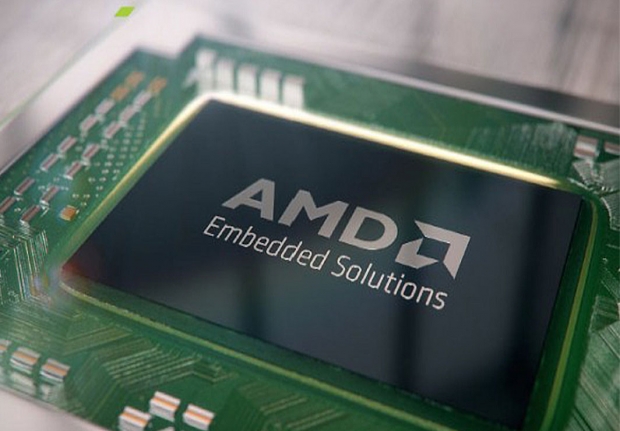Designed for demanding embedded needs, the processors incorporate the newest AMD 64-bit x86 CPU core ("Excavator"), plus third-generation Graphics Core Next GPU architecture, and better power management for reduced energy consumption.
AMD tells us that combined, these chips provide industry-leading graphics performance and key embedded features for next-generation designs. The SOC architecture enables simplified, small form factor board and system designs from AMD customers and a number of third party development platform providers.
What AMD brings to the party is its graphics and multimedia performance, including capability for hardware-accelerated decode of 4K video playback and support for the latest DDR4 memory.
Jim McGregor, principal analyst, TIRIAS Research said that AMDs push into x86 embedded platforms is paying off with an increasing number of customers and applications.
"There is a need for immersive graphics, high-quality visualization, and parallel computing in an increasing number of embedded applications. Across these fronts, the AMD Embedded R-Series SOC is a very compelling solution."
Scott Aylor, corporate vice president and general manager, AMD Embedded Solutions said that his outfit’s AMD Embedded R-Series SOC is a strong match for these needs in a variety of industries including digital signage, retail signage, medical imaging, electronic gaming machines, media storage, and communications and networking.
“The platform offers a strong value proposition for this next generation of high-performance, low-power embedded designs."
The new AMD Embedded R-Series SOCs offer 22 percent improved GPU performance when compared to the 2nd Generation AMD Embedded R-Series APU2 and a 58 percent advantage against the Intel Broadwell Core i7 when running graphics-intensive benchmarks.
AMD released some of the specs for its integrated AMD Radeon graphics including:
- Up to eight compute units4 and two rendering blocks
- GPU clock speeds up to 800MHz resulting in 819 GFLOPS
- •DirectX 12 support
- Fully HSA Enabled
The AMD Embedded R-Series SOC was architected with embedded customers in mind and includes features such as industrial temperature support, dual-channel DDR3 or DDR4 support with ECC (Error Correction Code), Secure Boot, and a broad range of processor options.
It has a configurable thermal design power (cTDP) allows designers to adjust the TDPs from 12W to 35W in 1W increments for greater flexibility.
The SOC also has a 35 percent reduced footprint when compared to the 2nd Generation AMD Embedded R-Series APU, making it an excellent choice for small form factor applications.
AMD said that the range is the first embedded processor with dual-channel 64-bit DDR4 or DDR3 with Error-Correction Code (ECC), with speeds up to DDR4-2400 and DDR3-2133, and support for 1.2V DDR4 and 1.5V/1.35V DDR3.
Its dedicated AMD Secure Processor supports secure boot with AMD Hardware Validated Boot (HVB) and initiates trusted boot environment before starting x86 cores
It has a high-performance Integrated FCH featuring PCIe Gen3 USB3.0, SATA3, SD, GPIO, SPI, I2S, I2C, and UART
The AMD Embedded R-Series SOC provides industry-leading ten-year longevity of supply. The processors support Microsoft Windows 7, Windows Embedded 7 and 8 Standard, Windows 8.1, Windows 10, and AMD's all-open Linux driver including Mentor Embedded Linux from Mentor Graphics and their Sourcery CodeBench IDE development tools.
It will be interesting to see if AMD can make up the ground it has lost on PCs and higher ticket items. Most of the company still appears to be in a holding pattern until Zen arrives.




